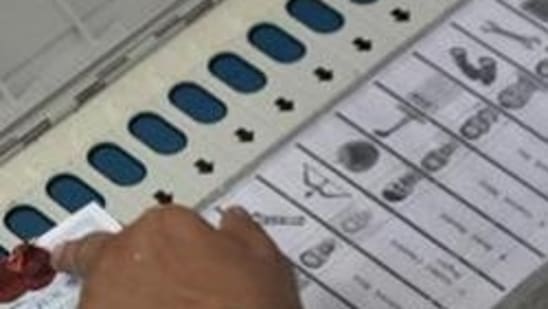Nationalism versus diversity: Choices that determined India’s election results
This article is authored by Sriparna Pathak.
India’s election results came as a surprise to several segments within India and outside, as all pre-poll results, which predicted a pounding majority yet again for the ruling government were innaccurate. While the Bhartiya Janata Party (BJP) alone secured 240 seats, over and above 232 seats secured by a coalition of several parties, known as the Indian National Development Inclusive Alliance (INDIA), the results did not match the expectation that the National Democratic Alliance (NDA), of which the BJP is a major party would secure more than 400 seats. The NDA finally won a total of 303 seats, ensuring a continuity of the government in place before the elections. It becomes pertinent in this context to analyse what shaped the electoral choices of the Indian voter.

While foreign policy issues generally does not figure high in the choices a voter makes, and issues of livelihoods, taxes, infrastructure availability and issues in general that affect day to day lives figure as top most priorities, in the case of India, increase in India’s international standing and nationalism played a role in the choices. The rationale behind this is India’s young population or the positive population dividends. India has more than 50% of its population below of the age of 25 and more than 65% of it is below the age of 35. Given that the world lives through the technology age, the fact that India has more than 820 million active users had implications for increasing nationalism and electoral choices.
Be it the Chinese People’s Liberation Army (PLA) attacking Indian Army soldiers at the borders, or the Prime Minister’s foreign visits, or India’s successful G20 presidency, information on where India is headed in the realm of foreign policy reached the Indian electorate, particularly the younger and the more upwardly mobile ones. This was one of the crucial factors for the BJP’s thumping win in Delhi where it won seven out of seven seats, while the ruling Aam Aadmi Party (AAP) in Delhi got nothing. This is the third consecutive Lok Sabha elections in which the BJP achieved a 100% success rate in the Capital. Foreign policy issues are starker and more evident in the capitals of countries across the world, and New Delhi is no exception.
Nationalism and the desire to have a stronger India in the realm of foreign policy also shaped choices as it was evident from the election manifesto of the BJP that it aims at continuing defences against China, (even though the country was not mentioned by name) and plans to continue taking a zero-tolerance approach to cross border terrorism from Pakistan. INDIA, on the other hand, had a manifesto which was shaped by choices of a plethora of parties, including the Communist Party of India, which arguably took a softer stance against China.
In the simplest of terms, nationalism as a sense of national consciousness, exalting one’s own nation above others, and placing primary emphasis on its own culture and interests became a norm, as the BJP using the tools that technology has to offer, showcased the advancements India as a nation has made under its leadership, be it in the realm of outer space, be it in climate negotiations, be it in demanding equal respect from other countries on equal terms. To be fair, India has had these achievements and many more under the leadership of the BJP, which the contesting INDIA did not have.
Thus, clearly, in the choice between nationalism and diversity, the Indian electorate voted for nationalism and greater respect for India abroad, over and above half-hearted promises of fighting seeming injustices and creating space for more diversity. Foreign policy choices will only climb up the ladder in the next few years for India when it goes to vote at the national level.
This article is authored by Sriparna Pathak, associate professor, Chinese Studies and International Relations, Jindal School of International Affairs, OP Jindal Global University, Sonipat.





